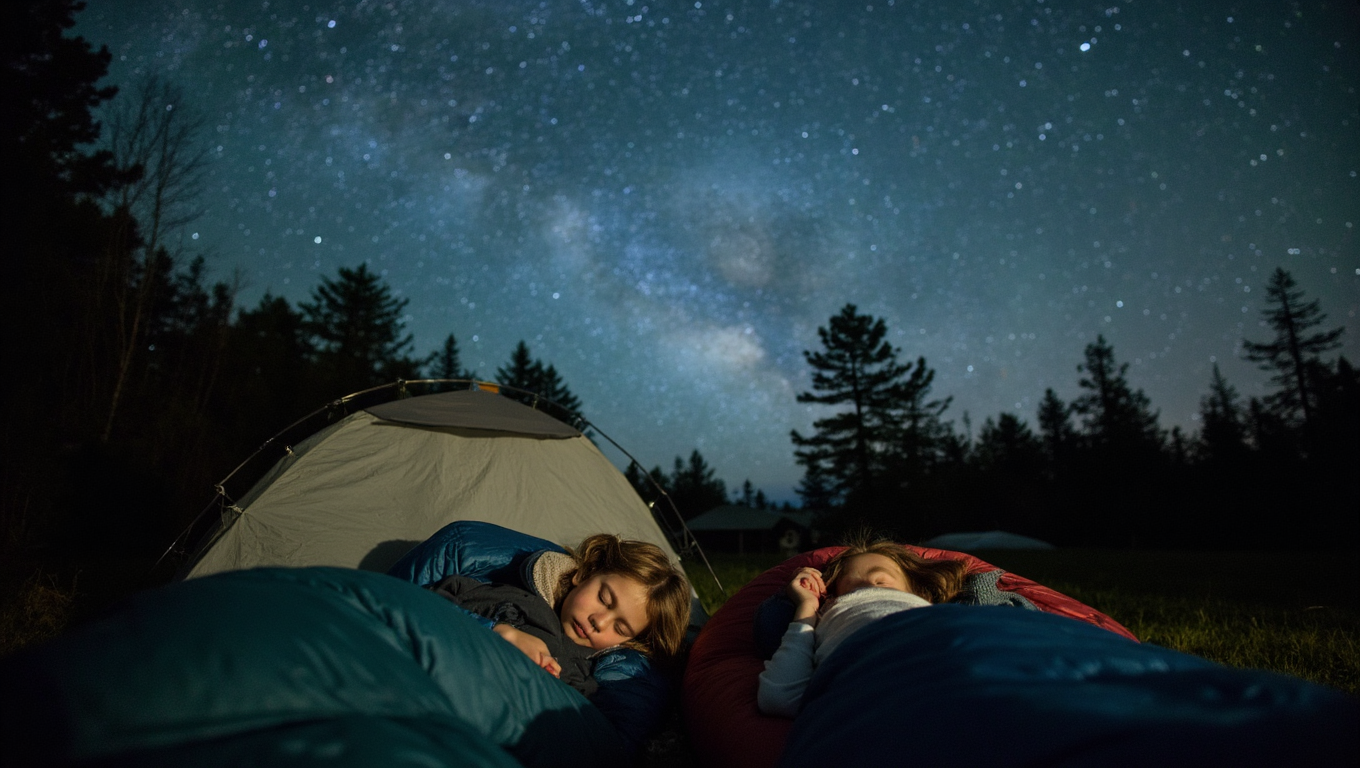Camping for Beginners: The Essential Gear You Need to Start
Camping for Beginners: The Essential Gear You Need to Start
If you’re new to camping, stepping into the outdoors for the first time can feel both exciting and overwhelming. There’s the thrill of fresh air, quiet nights under the stars, and freedom away from screens—but then comes the big question: What gear do I actually need to bring?
The good news is you don’t need to spend thousands of dollars to get started. With the right essentials, you can enjoy your first trip without feeling unprepared. In this guide, we’ll cover the must-have beginner camping gear, explain why each item matters, and give you practical tips to make your first outdoor adventure a success.
1. The Tent: Your Home Away From Home
A tent is the most important piece of camping gear. It keeps you sheltered from rain, wind, insects, and curious critters.
What to look for in a beginner-friendly tent:
- Easy setup: Look for tents with color-coded poles or “pop-up” designs.
- Capacity: A “2-person tent” fits two people tightly. If you want space for gear, size up (e.g., get a 3-person tent for two campers).
- Weather protection: Choose at least a 3-season tent with a rainfly.
- Ventilation: Mesh panels prevent condensation inside.
Recommended Gear:
- Basic dome tents for beginners (Coleman Sundome, REI Co-op Passage)
- Family tents for group camping (Core 6/9 Person Instant Cabin Tent)
2. Sleeping Bag and Sleeping Pad: Comfort at Night
Many first-time campers underestimate how cold nights can get—even in summer. A good sleeping bag keeps you warm, while a sleeping pad keeps you off the cold, hard ground.
What to look for:
- Sleeping Bag: Check the temperature rating. For beginners, a 30°F–40°F bag works for most 3-season trips.
- Sleeping Pad: Foam pads are cheap but bulky. Inflatable pads are comfortable and compact.
- Pro Tip: Layer your sleeping bag with a liner for extra warmth.
Recommended Gear:
- REI Trailbreak Sleeping Bag
- Therm-a-Rest Z Lite Foam Pad or Nemo Tensor Inflatable Pad
3. Cooking Gear: Food Fuels the Adventure
Eating well while camping doesn’t mean instant noodles every night. With basic cooking gear, you can prepare hot meals easily.
Essentials to bring:
- Camping Stove: Small propane stoves are beginner-friendly.
- Cookware: One pot and one pan are enough for a weekend.
- Utensils: Don’t forget a spatula, spoon, and a camping mug.
- Cooler: Keeps drinks and perishable food fresh.
Recommended Gear:
- Coleman Portable Propane Stove (classic beginner-friendly stove)
- Stanley Adventure Cooking Set
- Igloo or Yeti Cooler for food storage
4. Lighting: Don’t Be Left in the Dark
Once the sun goes down, campsites get dark—really dark. Lighting isn’t just for comfort; it’s for safety.
Types of camping lights:
- Headlamps: Hands-free lighting, perfect for cooking or walking around camp.
- Lanterns: Great for lighting up tents or picnic tables.
- Flashlights: Always good to keep one in your backpack.
Recommended Gear:
- Black Diamond Spot Headlamp
- Goal Zero Lighthouse Lantern
5. Safety and Essentials
Camping is fun, but preparation is key. Always pack safety essentials, even for short trips.
Must-have items:
- First aid kit (bandages, antiseptic, tweezers, pain relief)
- Pocket knife or multitool
- Firestarter (matches, lighter, or firestarter sticks)
- Map and compass (don’t rely only on your phone)
- Extra clothing layers (weather can change quickly)
Recommended Gear:
- Swiss Army Knife or Leatherman Multitool
- LifeStraw or Sawyer Mini Water Filter
- Adventure Medical Kits Ultralight/Watertight First Aid Kit
6. Extras That Make Camping Easier
While not strictly essential, these extras improve your camping comfort:
- Camping chairs for relaxing by the fire
- Camping table if your site doesn’t have one
- Hammock for lounging during the day
- Portable power bank for charging phones or lights
7. Beginner Camping Tips for a Smooth Trip
- Practice at home: Try setting up your tent in your backyard before the trip.
- Keep meals simple: Pre-prep ingredients so you’re not chopping veggies in the dark.
- Stay organized: Use clear storage bins to keep gear tidy.
- Check the weather: Always pack one extra warm layer, even in summer.
- Leave no trace: Respect nature by packing out everything you bring in.
8. Sample Beginner Camping Checklist
Here’s a simple list to get you started:
- Tent + stakes + ground tarp
- Sleeping bag + sleeping pad
- Camping stove + fuel + cookware
- Cooler with food + water bottles
- Headlamp + lantern + extra batteries
- First aid kit + knife + map/compass
- Clothing layers + rain jacket
- Camping chair + extras (hammock, games)
Final Thoughts
Camping doesn’t need to be complicated. With the right essential gear for beginners, you’ll have everything you need to feel safe, comfortable, and ready for adventure. Start small—maybe just a weekend trip—and you’ll quickly learn what works for you. Over time, you’ll refine your setup and add gear that fits your camping style.
The important thing is to just get out there. Fresh air, starlit skies, and a warm campfire are waiting for you.

